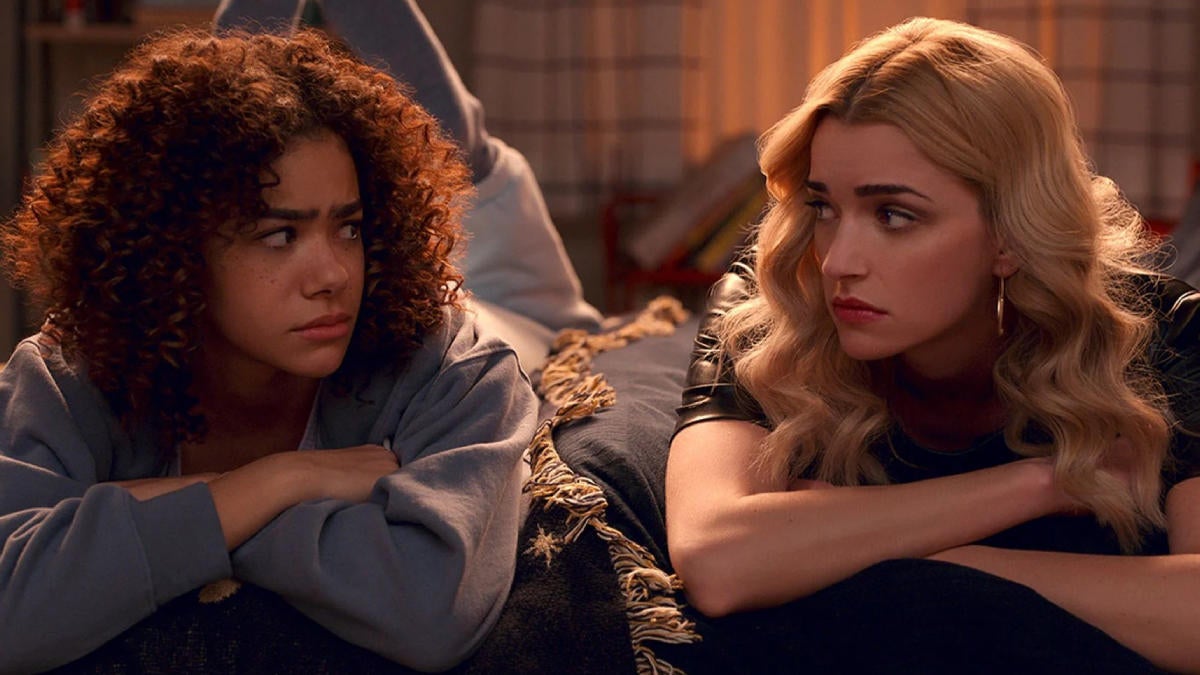Bob Marley: One Love Review: More of a Celebration Than a Biopic
Is Bob Marley: One Love a fitting tribute to the iconic musician and his life story? Find out in our review.
Bob Marley: One Love attempts to use a pivotal time in the life of the now-legendary musician and social revolutionary to define who he was as a man, and what his time on Earth meant. With a cast that is led by Kingsley Ben-Adir and Lashana Lynch as Bob Marley and his wife and musical partner Rita, respectively, and heavy influence from the Marley estate, One Love is at once a touching portrait of a man, but also not entirely comprehensive (or even honest) in function as a biopic.
The "story" of Bob Marley: One Love begins in 1976 when the "Smile Jamaica" concert is being held to ease political tensions in the country. Bob and Rita's lives change forever when the couple and their manager Don Taylor all become victims of an attempted assassination before playing the concert. The near-death experience rattles Bob, provoking him to leave Jamaica for England while keeping Rita and his children safely tucked away in the United States.
Bob spends his time in Europe both reflecting on the past events that led him to this point, as well as trying to unlock a new era of Reggae music that will appeal to a global mainstream audience. To do that, Bob must be open to some new friends, and new social scenes – compromises that begin to strain his relationship with Rita, and throw his obligation to his homeland (Jamaica) into question.
That synopsis above is a more concise and focused measure of Bob Marley: One Love's story than the actual film delivers. Director Reinaldo Marcus Green (King Richard) and his editor Pamela Martin create a strange, offbeat flow to the film. There is a clear fascination with Kingsley Ben-Adir's performance as Bob Marley (which is, admittedly, strong) and the "key" moments of musical creation with his band. Yet, there are also non-linear jumps into periods of Bob's childhood and his induction into the Rastafari religion that add a surrealist layer to the film, which comes and goes in strange moments that could make even the soberest viewer feel trippy. It will likely also be an issue for many mainstream viewers that One Love opts to go with authentic Jamaican dialect; unless viewers have a sharp ear (or the cultural practice) there will likely be a lot of nuance and wit that is missed in the dialogue. Still, the camerawork and cinematography by Paul Thomas Anderson collaborator Robert Elswit (There Will Be Blood) is often gorgeous, subtly capturing the vast differences in worlds between Jamaica and England, while impeccably recreating the late 1970s era and visual aesthetic.
Green, with script co-writers Terence Winter (Boardwalk Empire), Zach Baylin (King Richard, Creed III), and Frank E. Flowers, all manage to get enough of a throughline in place for the story to have some kind of thematic core, using the near-assassination of Bob Marley to frame how he suddenly realized his own mortality and did something epic with the time he had left (just five years before he died in 1981). However, the impact of that time (or lack thereof) is more effectively conveyed by the captions at the end of the film than it is by the film itself, which invests a lot of time in examining the path of Marley's creative struggles, and what they were rooted in. Kingsley Ben-Adir and Lashana Lynch are fantastic as Bob and Rita Marley. Full stop. The two actors (and a few pairs of young actors playing the couple at younger ages) carry the film, with a strong ensemble of character actors coming together to play the key historical figures like Don Taylor (Anthony Welsh), record executive Chris Blackwell (James Norton), or writer Howard Bloom (Michael Gandolfini). Everyone sinks into character and flows together well as an ensemble, keeping scenes lively and intriguing, even in seemingly "slower" moments like marketing meetings or songwriting sessions.
One Love is also an undeniably favorable – even reverent – look at Bob Marley, skipping over many of the rougher edges of his life (not to mention the multiple women in it) except for some visual Easter eggs, dialogue references, and (just) one scene of conflict between Bob and Rita that hints at much more. The smoothed edges are not surprising, given that Rita Marley, her and Bob's son Ziggy, and daughter Cedella are all producers on the film – with the family's Tuff Gong Pictures being one of the studios behind it. Compassionate edits are expected, yes, but it results in a biopic that feels more whimsical than real. The 2012 Kevin Macdonald documentary film Marley still stands as the most comprehensive and interesting look at the man behind the myth – but no doubt, Bob Marley: One Love is a beautiful (if indulgent) celebration of that myth. And the love is definitely felt.
Rating: 3 out of 5
Bob Marley: One Love is now playing in theaters.




